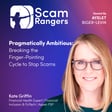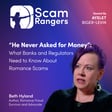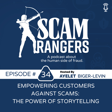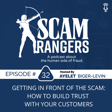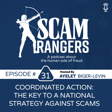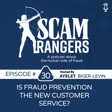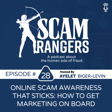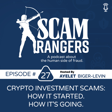
Scam-Proofing Social Media: The Good, The Bad, and The Reality , A conversation with Assaf Kipnis, ex-Facebook Integrity Team lead
In this revealing episode, we sit down with Assaf, a former member of Fakebook's integrity team, to explore the complexities of combating scams and fraud on social media platforms. Assaf shares candid insights into the challenges faced by the team in preserving user safety while maintaining platform integrity. We delve into shutting down fake accounts, the impact on PR on the team's work and the importance of industry collaboration, particularly with law enforcement agencies. Join us as we uncover the strategies and considerations involved in making social media a safer place for users, with a focus on building productive partnerships and preventing potential scams.
Find Assaf on LinkedIn: https://www.linkedin.com/in/assafkipnis/
This podcast is hosted by Ayelet Biger-Levin who spent the last 15 years building technology to help financial institutions authenticate their customers and identify fraud. She believes that when it comes to scams, the story starts well before the transaction. She has created this podcast to talk about the human side of scams, and to learn from people who have decided to dedicate their lives to speaking up on behalf of scam victims and who take action to solve this problem. Be sure to follow her on LinkedIn and reach out to learn about her additional activities in this space. https://www.linkedin.com/in/ayelet-biger-levin/
Also check out https://scamranger.ai if you had received a message that you suspect is a scam
